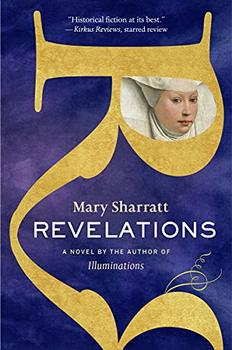Summary | Excerpt | Reviews | Beyond the book | Read-Alikes | Genres & Themes | Author Bio

From the critically acclaimed New York Times bestselling author Sharon Kay Penman comes the story of the reign of King Baldwin IV and the Kingdom of Jerusalem's defense against Saladin's famous army.
The Kingdom of Jerusalem, also known as Outremer, is the land far beyond the sea. Baptized in blood when the men of the First Crusade captured Jerusalem from the Saracens in the early twelfth century, the kingdom defined an utterly new world, a land of blazing heat and a medley of cultures, a place where enemies were neighbors and neighbors became enemies.
At the helm of this growing kingdom sits young Baldwin IV, an intelligent and courageous boy committed to the welfare and protection of his people. But despite Baldwin's dedication to his land, he is afflicted with leprosy at an early age and the threats against his power and his health nearly outweigh the risk of battle. As political deception scours the halls of the royal court, the Muslim army--led by the first sultan of Egypt and Syria, Saladin--is never far from the kingdom's doorstep, and there are only a handful Baldwin can trust, including the archbishop William of Tyre and Lord Balian d'Ibelin, a charismatic leader who has been one of the few able to maintain the peace.
Filled with drama and battle, tragedy and romance, Sharon Kay Penman's latest novel brings a definitive period of history vividly alive with a tale of power and glory that will resonate with readers today.
The Land Beyond the Sea is a big, sprawling work of historical fiction sure to please Penman's existing devotees, and this latest opus will likely attract new readers to her oeuvre. In spite of the book's length and complexity, it is an easy, captivating read—not quite a page-turner, but close. Historical fiction aficionados looking for a book to engage their time and attention need look no further...continued
Full Review
 (682 words)
(682 words)
(Reviewed by Kim Kovacs).
 Sharon Kay Penman's novel The Land Beyond the Sea is set in the Middle Ages in a region known as Outremer (pronounced OO-tray-mare). This collection of European-held city-states was formed during the First Crusade and comprised of the Kingdom of Jerusalem, the County of Edessa, the County of Tripoli and the Principality of Antioch.
Sharon Kay Penman's novel The Land Beyond the Sea is set in the Middle Ages in a region known as Outremer (pronounced OO-tray-mare). This collection of European-held city-states was formed during the First Crusade and comprised of the Kingdom of Jerusalem, the County of Edessa, the County of Tripoli and the Principality of Antioch.
Jerusalem is revered by the three major Abrahamic religions (Judaism, Christianity and Islam) as a holy city, and has been important to all three for millennia. Historically, various groups have fought for control of it and the surrounding territory. From the 7th century to the end of the 11th century CE, the area was under Muslim rule. The series of wars referred to as the Crusades were set in motion when...

If you liked The Land Beyond the Sea, try these:

by Mary Sharratt
Published 2022
A fifteenth-century Eat, Pray, Love, Revelations illuminates the intersecting lives of two female mystics who changed history - Margery Kempe and Julian of Norwich.

by Umberto Eco
Published 2003
Fuses historical events of the twelfth century with myths and fables, juicy romance, real political issues, and deep questions of faith--the result is dazzling fireworks.
If we did all the things we are capable of, we would literally astound ourselves
Click Here to find out who said this, as well as discovering other famous literary quotes!